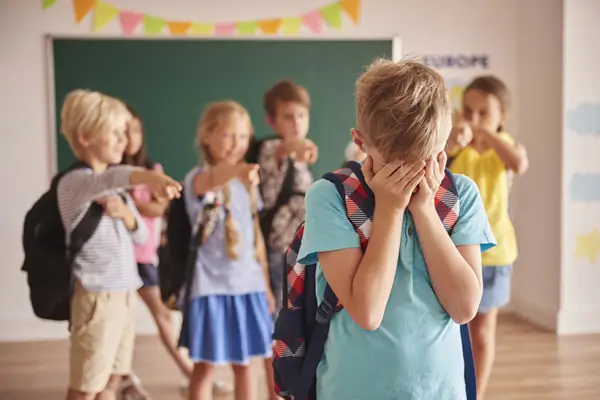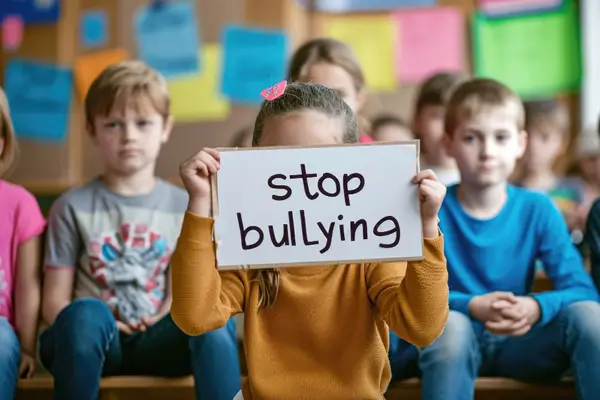Understanding and Addressing Bullying: A Guide for Parents and Caregivers
For many children, bullying is more than just a difficult rite of passage or a phase. It can be a painful experience that can shape a child’s sense of self, influence their relationships, and impact their mental health well into adulthood. As a psychologist who works closely with children and families, I’ve seen how bullying—whether physical, verbal, or digital—can leave lasting emotional scars.
What exactly is bullying and what are the different ways it can occur? Physical bullying involves hitting, pushing, or damaging someone’s belongings. Verbal bullying includes name-calling, teasing, or threats. Relational bullying, often more covert, may involve excluding someone from a group, spreading rumors, or manipulating social relationships to isolate the victim. And then there’s cyberbullying, which happens through digital platforms such as social media, messaging apps, and online games. This latter form of bullying can be especially distressing to children because screens are ubiquitous, making the bullying difficult to escape.
Why do children bully? While there’s no single answer, research has revealed several contributing factors. Some children bully others as a way to assert control or boost their social status, especially in peer groups where dominance is equated with popularity. Others might be acting out due to unresolved anger, frustration, or emotional pain. Children who grow up in environments where aggression is modeled — whether through family dynamics, inappropriate media exposure, or other community influences — may learn to replicate those behaviors.
In some instances, bullying is a misguided attempt at social connection. A child who feels excluded might lash out at others to feel included or noticed. Others may join in bullying behavior to avoid becoming targets themselves. These dynamics can be especially powerful in middle and high school where social hierarchies are constantly shifting.
What is the impact of bullying on children? The effects of bullying can be profound and long-lasting. Children who are bullied can experience increased levels of anxiety, depression, low self-esteem, post-traumatic distress, suicidality and even aggression. They may begin to dread school, suffer academic decline, become avoidant, self-medicate with substances or develop physical symptoms (e.g., headaches or stomachaches).
Over time, the cumulative effects of bullying can contribute to serious mental health concerns, and that’s why it’s so important for adults to recognize the signs early and respond quickly with empathy and action.
How can parents and caregivers help their bullied child? If your child is being bullied, your support will be a powerful protective factor. I recommend that parents and caregivers start by creating a safe, open environment where the bullied child can feel comfortable enough to talk about their situation. Instead of immediately offering solutions, listen with compassion. Ask open-ended questions like, “Can you tell me more about what happened?” or “How are you feeling about it now?”
Validating your child’s emotions and reassuring him or her that they’re not to blame is important. It’s common for children to internalize bullying and wonder if they’ve done something to deserve it, which is why reminding them that no one deserves to be mistreated and that they have the right to feel safe and respected is a good thing to do.
Parents and caregivers should also take concrete steps to address the problem by contacting the bullied child’s school or organization where the bullying is happening. Most schools have anti-bullying policies in place, though enforcement can vary. Requesting a meeting with teachers, counselors, administrators or involved others to develop a plan for keeping your child safe is highly recommended. Be direct, be clear and be on top of the bullying situation right away for your child. At home, help your child build resilience through regular routines, positive reinforcement, and opportunities to engage in activities and social moments that affirm their strengths.

What can your child do if he or she is being bullied? Empowering your child with practical strategies is important. While children should never be expected to “fix” bullying on their own, they can learn skills to protect themselves and seek support.
Help your child to practice calm, confident responses — short phrases like “That’s not okay” or “Please stop” — that communicate boundaries without escalating the situation. Teach them the importance of walking away and reporting the incident to a trusted adult, even if they worry about being labeled a “tattletale.” Encourage your child to identify safe people and spaces at school or in their community. These might include a favorite teacher, school counselor, or after-school activity. Children often feel less alone when they know where they can turn for support.
Building social connections is another powerful buffer. If your child has experienced social isolation due to bullying, consider enrolling them in clubs or activities where they can make new friends in a safe and supportive environment.
When should you get professional help if your child is being bullied? Not all bullying situations require therapy, but when the emotional toll becomes overwhelming, professional support can make a significant difference. A well trained and experienced therapist can help your child process what’s happened, rebuild their self-worth, and develop healthy coping skills. For some families, therapy also provides guidance on how to navigate the school system, set boundaries, or work through the family’s collective emotional response.
If your child is expressing signs of depression, anxiety, or thoughts of self-harm, or if your child has become more avoidant and/or negative, I recommend that you schedule a consultation with a therapist or psychologist as soon as possible. Mental health professionals can work alongside your family to ensure safety and create a plan for recovery.
Moving forward together. Bullying is most often not just a “phase” or something to gloss over as a parent or caregiver — it’s more often than not a serious issue that can affect a child’s emotional and psychological well-being. But with awareness, empathy, and the right interventions, it can be addressed. Parents and caregivers play a critical role, not only in advocating for their children, but also in modeling healthy relationships and emotional resilience.
If you’re concerned about bullying in your child’s life, you don’t have to face it alone. Whether through school partnerships, peer support, or therapy, help is available. Here’s to fostering a culture where every child feels safe, valued, and empowered to thrive.

Michael Oberschneider, Psy.D. “Dr. Mike” is a clinical psychologist in private practice.
He can be reached at 703-723-2999, and is located at 44095 Pipeline Plaza, Suite 240, Ashburn.


